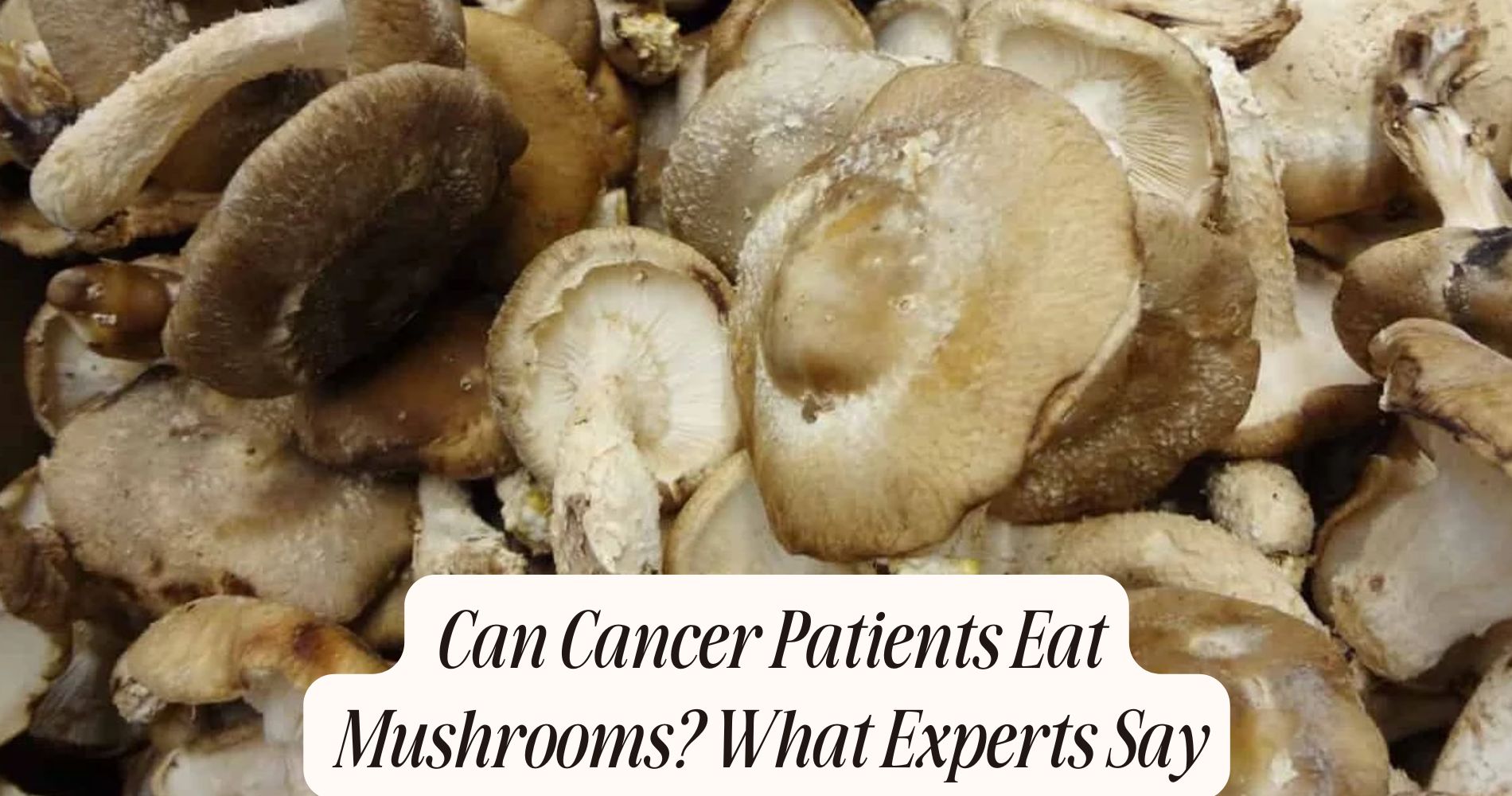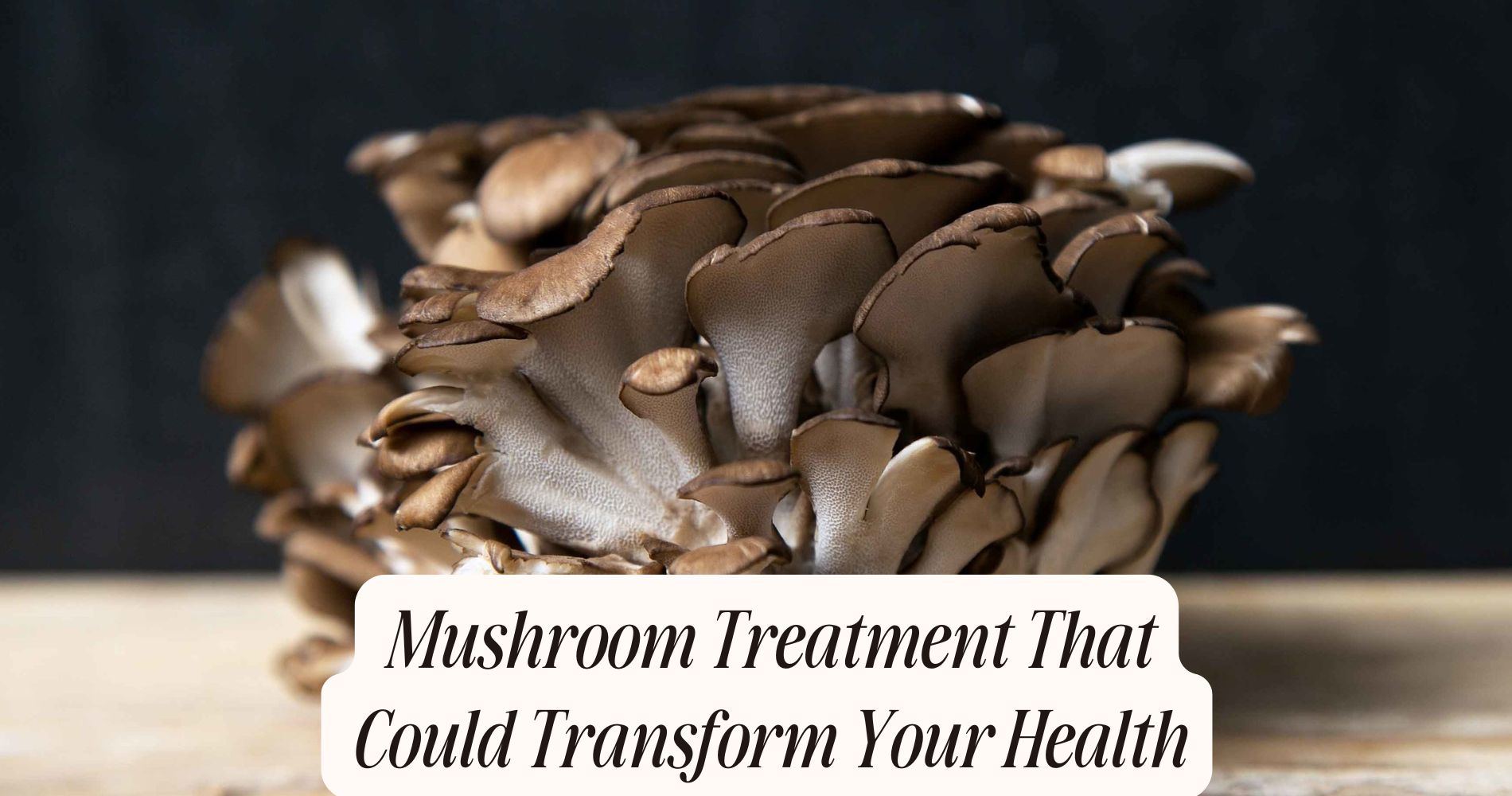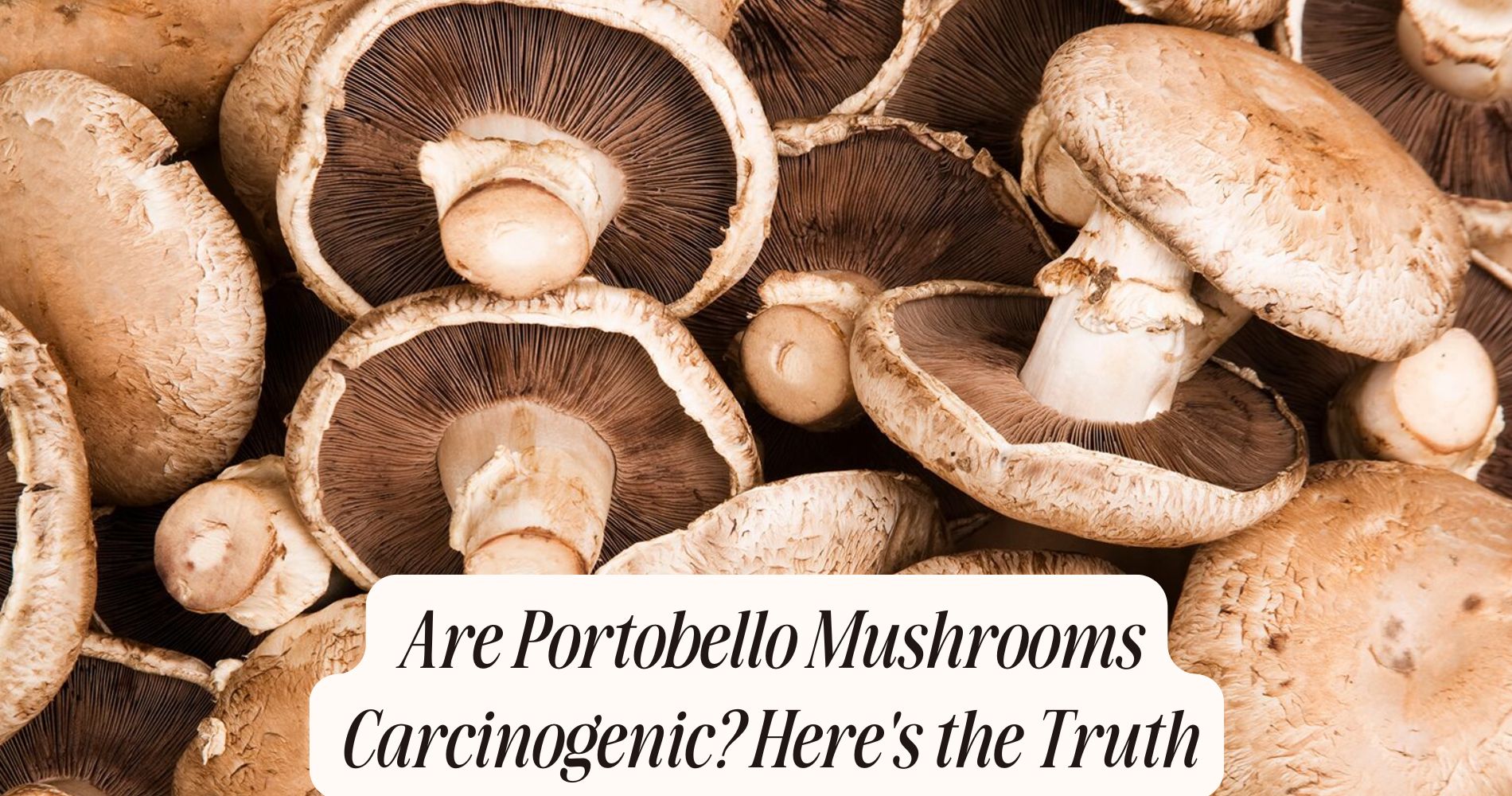
Can Cancer Patients Eat Mushrooms? What Experts Say
Can cancer patient eat mushroom? Yes, cancer patients can eat mushrooms, as they offer nutritional benefits and potential immune support. Varieties like shiitake and maitake are particularly rich in beta-glucans, which can enhance your immune function. These mushrooms may also help in managing treatment side effects and promoting overall wellness. However, it's important to verify you're sourcing mushrooms from reputable suppliers to avoid contamination. Be cautious of possible allergic reactions and discuss your diet with your healthcare provider, especially if you're on medication. To explore the therapeutic potential of mushrooms further, you'll find detailed insights about their role in cancer care.
Nutritional Benefits of Mushrooms
When considering dietary options for cancer patients, mushrooms stand out due to their impressive nutritional profile. These fungi are packed with essential nutrients that can support your overall health during treatment.
One of the key benefits of mushrooms is their ability to provide immune support. They contain beta-glucans, which have been shown to enhance immune function, potentially helping your body to better fight infections and maintain resilience.
Additionally, mushrooms are an excellent source of dietary fiber. Fiber plays a vital role in digestive health, promoting regular bowel movements and preventing constipation, which can be a common issue for cancer patients undergoing treatment.

By incorporating fiber-rich foods like mushrooms into your diet, you can support a healthy gut microbiome, which is increasingly recognized for its role in overall health and well-being.
Moreover, mushrooms are low in calories and fat, making them a smart choice for maintaining a healthy weight during treatment. Their versatility allows you to easily add them to various dishes, ensuring that you receive these nutritional benefits without sacrificing flavor.
Potential Risks of Mushroom Consumption
When considering mushroom consumption, it's essential to recognize the potential risks involved.
You may experience allergic reactions, especially if you have a history of sensitivities to fungi.
Additionally, mushrooms can be contaminated with harmful substances and may interact with certain medications, posing further health concerns.
Allergic Reactions Possible
Mushrooms, often hailed for their nutritional benefits, can also pose potential risks, particularly for individuals with sensitivities. If you have a history of allergies, it's important to recognize that mushroom allergies can trigger an immune response in your body. This response might manifest as symptoms ranging from mild to severe, including skin rashes, gastrointestinal distress, and respiratory issues.
In some cases, the immune system mistakenly identifies proteins in mushrooms as harmful, leading to an allergic reaction. Commonly consumed varieties, such as shiitake or portobello, can provoke these reactions in susceptible individuals. If you experience itchiness, swelling, or difficulty breathing after consuming mushrooms, it's vital to seek medical attention immediately.

Moreover, even if you've successfully eaten mushrooms in the past, allergies can develop at any stage in life, making it essential to stay vigilant. Consulting with a healthcare professional or an allergist can help you determine your specific risk level regarding mushroom consumption.
Ultimately, while mushrooms can be a nutritious addition to your diet, you must prioritize your health and well-being, particularly if you have a known allergy or sensitivity.
Contaminated Sources Risk
Consuming mushrooms from contaminated sources can pose significant health risks, as these fungi can absorb toxins and harmful substances from their environment. Contamination sources may include polluted soil, water, or exposure to pesticides and heavy metals.
As a cancer patient, you must prioritize food safety, as your immune system may be compromised. Mushrooms cultivated in controlled environments are typically safer than those foraged from the wild, where the risk of contamination increases.
Foraged mushrooms can absorb toxins from decaying organic matter or neighboring plants, leading to potentially harmful effects. Ingesting contaminated mushrooms can result in gastrointestinal distress or even more severe health issues, depending on the type of toxin present.
To mitigate these risks, always source your mushrooms from reputable suppliers. If you're interested in wild mushrooms, consult an expert foraging guide or a professional mycologist to guarantee you're selecting safe varieties.
Additionally, thorough cooking can reduce certain microbial risks, but it won't eliminate toxins already present. Remaining vigilant about contamination sources is essential for maintaining your health while enjoying mushrooms in your diet.
Interaction With Medications
While guaranteeing the safety of the mushrooms you consume is vital, it's equally important to contemplate how they might interact with medications you may be taking as a cancer patient. Certain mushrooms, particularly medicinal varieties like reishi or shiitake, can influence medication absorption and efficacy, leading to potential drug interactions.
For instance, some compounds in mushrooms may enhance or inhibit the metabolism of certain drugs, affecting how your body processes medications. If you're using anticoagulants, for example, consuming mushrooms like maitake could alter their effectiveness, increasing the risk of bleeding.
Similarly, mushrooms rich in polysaccharides may enhance immune response, which can interfere with immunosuppressive drugs prescribed post-transplant or during chemotherapy.
It's essential to consult your healthcare provider before adding mushrooms to your diet. They can help you understand how specific mushroom types could interact with your medications and adjust your treatment plan accordingly.
Types of Mushrooms and Their Effects
When considering mushrooms, it's important to recognize their nutritional benefits and medicinal properties.
Certain types, like shiitake and reishi, offer valuable nutrients and compounds that may support your immune system and overall health.
Understanding these effects can help you make informed choices about incorporating mushrooms into your diet during cancer treatment.
Nutritional Benefits of Mushrooms
Mushrooms offer a diverse range of nutritional benefits that can support cancer patients in their dietary needs. Various mushroom varieties, such as shiitake, maitake, and portobello, are rich in essential vitamins, minerals, and antioxidants.
For instance, shiitake mushrooms contain polysaccharides that can enhance immune function, while maitake mushrooms are known for their high levels of vitamin D, which is crucial for overall health.
Incorporating mushrooms into your diet can be simple and versatile, as different cooking methods can highlight their unique flavors and textures. Sautéing, grilling, or roasting mushrooms not only enhances their taste but also preserves their nutritional content.

You can add them to soups, stir-fries, or salads to increase the nutrient density of your meals.
Additionally, mushrooms are low in calories and high in fiber, making them an excellent choice for maintaining a healthy weight during treatment. Their natural umami flavor can also help improve the palatability of meals, which is important for cancer patients who may experience changes in taste.
Medicinal Properties Explored
In addition to their nutritional benefits, certain types of mushrooms possess medicinal properties that can be particularly advantageous for cancer patients.
Varieties such as shiitake, maitake, and reishi mushrooms have been studied for their potential to enhance immune support, which is vital during cancer therapies.
Shiitake mushrooms contain lentinans, which have shown promise in boosting the immune system and may help in fighting tumors.
Maitake mushrooms also exhibit immune-enhancing properties and can potentially improve the body's response to cancer treatments.
Reishi mushrooms, often referred to as the "mushroom of immortality," are known for their anti-inflammatory and immune-modulating effects, making them a valuable addition to a cancer patient's diet.
Research suggests that incorporating these medicinal mushrooms into your diet may not only support overall health but could also complement conventional cancer therapies.
However, it's important to consult your healthcare provider before adding mushrooms or any supplements to your regimen, as individual responses can vary.
Expert Opinions on Mushrooms
The growing interest in the therapeutic potential of mushrooms has captured the attention of medical experts and researchers alike. Various mushroom varieties, such as shiitake, reishi, and turkey tail, are being studied for their possible benefits in supporting cancer treatment.
Experts emphasize that while some mushrooms contain bioactive compounds that may enhance immune function or reduce inflammation, it's essential to approach this information critically.
Expert insights suggest that certain compounds found in mushrooms, like beta-glucans and triterpenes, could offer synergistic effects when combined with conventional therapies. However, they also caution against viewing mushrooms as a cure-all. The efficacy and safety of these mushrooms can vary greatly, depending on factors like preparation methods and individual patient conditions.
Healthcare professionals recommend consulting with a physician or a registered dietitian familiar with integrative approaches before incorporating mushrooms into your diet. They can help you navigate the complexities of mushroom consumption, especially if you're undergoing cancer treatment.

While some studies show promise, ongoing research is essential to fully understand the implications of mushroom consumption for cancer patients. Always prioritize evidence-based guidance when considering dietary changes during treatment.
Incorporating Mushrooms Into Diet
Incorporating various mushroom types into your diet can provide potential health benefits, particularly for those undergoing cancer treatment. Mushrooms like shiitake, maitake, and reishi are rich in polysaccharides, antioxidants, and vitamins that may support immune function and overall health.
When meal planning, consider adding mushrooms to soups, stir-fries, or salads. Their umami flavor enhances dishes while providing essential nutrients. For a simple recipe idea, sauté sliced shiitake mushrooms with garlic and spinach as a side dish, or blend them into a creamy soup for added depth.
You can also try incorporating mushrooms into whole grain dishes. For instance, mix cooked farro or quinoa with roasted portobello caps, cherry tomatoes, and a drizzle of balsamic vinegar for a nutritious, filling meal.
Don't forget about mushroom powders, which can easily be added to smoothies or sauces for an extra health boost.
As you explore different types of mushrooms, remember to consult with your healthcare provider or a nutritionist to guarantee that your dietary choices align with your treatment plan and personal health needs.
Patient Testimonials and Experiences
Sharing experiences and testimonials from cancer patients who've incorporated mushrooms into their diets can provide valuable insights into the potential benefits of these fungi. Many patients report that adding mushrooms, such as shiitake or maitake, hasn't only enhanced their meals but also contributed to an overall sense of well-being.
For instance, one patient shared a personal story about how consuming mushrooms during chemotherapy helped mitigate some side effects, such as nausea and fatigue. This individual emphasized the emotional support gained from preparing and sharing mushroom dishes with family, turning meal times into moments of connection and joy.
Another cancer survivor noted that mushrooms offered a sense of empowerment in their dietary choices, feeling that they were actively participating in their health journey. They highlighted the importance of community and shared recipes among fellow patients, creating a network of support that made the experience less isolating.
These personal stories reveal that while mushrooms may not be a cure, they can play a significant role in improving quality of life, fostering emotional resilience, and providing a sense of normalcy during challenging times.
Research Studies on Mushrooms and Cancer
Research has increasingly focused on the potential health benefits of mushrooms, particularly in relation to cancer. Various studies indicate that certain mushroom varieties, such as shiitake, maitake, and reishi, may possess compounds that enhance immune function and exhibit anti-cancer properties. For instance, polysaccharides found in these mushrooms have been linked to the inhibition of tumor growth and cancer cell proliferation.

Additionally, research suggests that mushrooms can contribute to cancer prevention. A study published in the journal "Nutrients" found that regular consumption of mushrooms correlates with a reduced risk of breast cancer, especially in women. The antioxidants present in mushrooms help combat oxidative stress, a factor that contributes to cancer development.
Moreover, some mushroom varieties, such as lion's mane, are being explored for their neuroprotective effects, which could be beneficial for cancer patients undergoing treatments like chemotherapy.
While more extensive clinical trials are needed to confirm these effects, the existing evidence highlights the potential role of mushrooms in cancer care and prevention. Incorporating these nutrient-dense foods into your diet may provide supportive benefits during your cancer journey.
Always consult your healthcare provider before making significant dietary changes.
Support Wellness Naturally with 10-IN-1 MUSHROOM GUMMIES
If you’re exploring can cancer patients eat mushroom and want a convenient way to incorporate the benefits of mushrooms, Well Gummies’ 10-IN-1 MUSHROOM GUMMIES are an ideal choice. Each vegan gummy is packed with 10 functional mushrooms, providing immune support, calm energy, and mental clarity in a delicious, chewable form. With powerful mushrooms like reishi included, these gummies offer a natural boost without jitters or crashes. The wild berry flavor makes them as enjoyable as your favorite candy, providing a simple way to enhance your daily wellness.
Frequently Asked Questions
Can Mushrooms Interact With Cancer Medications?
Mushrooms can affect medication absorption, potentially impacting the efficacy of cancer treatments. Always consult your healthcare provider about mushroom safety and its possible interactions with your specific cancer medications to guarantee ideal treatment outcomes.
Are There Specific Mushrooms to Avoid During Treatment?
When considering dietary restrictions during treatment, you should avoid certain mushroom varieties like raw or undercooked ones, as they may harbor toxins. Always consult your healthcare team for personalized advice on safe mushroom consumption.
How Should Mushrooms Be Prepared for Safety?
To guarantee safety, wash mushrooms thoroughly under running water. Cook them using methods like sautéing or boiling to eliminate potential contaminants and enhance digestibility, promoting their nutritional benefits while minimizing any health risks.
Can Mushrooms Boost Immune Function for Cancer Patients?
Mushroom varieties like shiitake and reishi may offer immune support due to their bioactive compounds. Incorporating them into your diet could enhance your immune function, but always consult your healthcare provider for personalized advice.
Are There Age-Related Considerations for Mushroom Consumption?
When considering mushroom consumption, age differences matter. Older adults may experience varying digestion and nutrient absorption with specific mushroom types, affecting health benefits. It's crucial to consult a healthcare professional before making dietary changes related to mushrooms.
Conclusion
Incorporating mushrooms into your diet can offer various nutritional benefits, but it is important to take into account potential risks based on your specific health condition. Different mushroom types have unique effects, so consulting with your healthcare provider is vital. Expert opinions generally support moderate consumption, emphasizing the significance of variety and balance in your diet. Stay informed by reviewing ongoing research, and listen to the experiences of other patients to make well-rounded dietary choices during your cancer journey.




